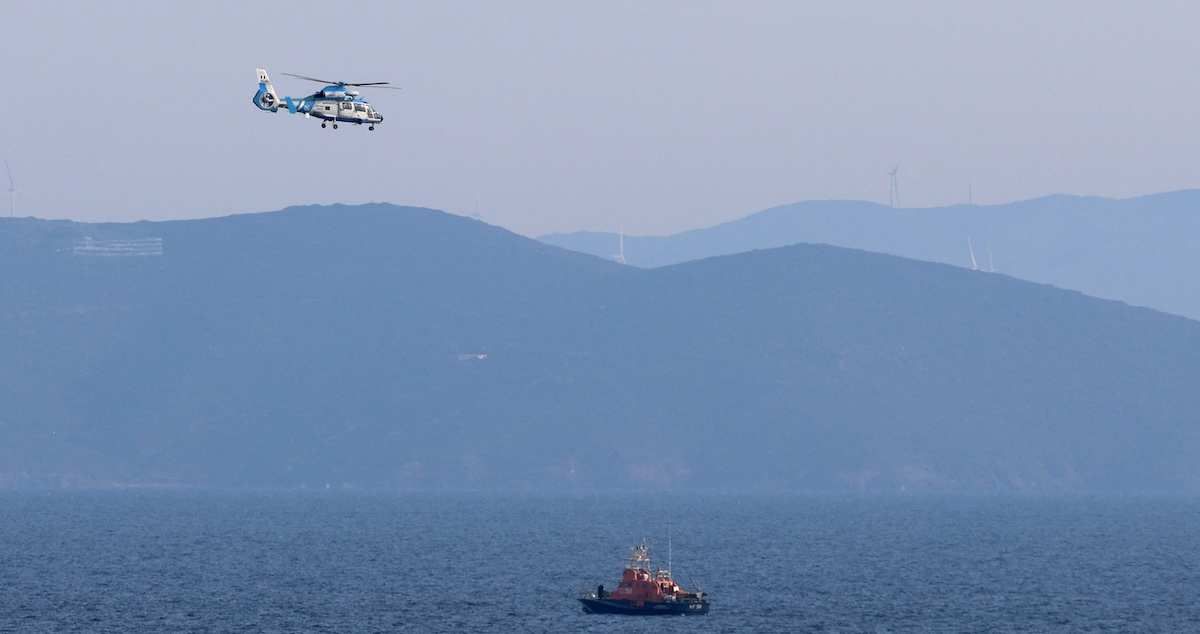News
August 03, 2018
WHAT WE'RE WATCHING
Trouble for US-Turkey – The US slapped sanctions on Turkey's justice and interior ministers this week in response to the continued detention of a US pastor. Andrew Brunson has been in custody for nearly two years. Turkey’s government says he’s a spy with links to terrorists. President Trump calls Brunson a “great Christian, family man and wonderful human being” who is “suffering greatly.” This is incident #743 in a lengthening list of grievances dividing these two governments. No one wants to be the one to blink, and this conflict could get worse.
Trouble in 3D –A US gun rights activist pledged this week to fight for his right to publish online blueprints for 3D-printed firearms all the way to the US Supreme Court after a federal judge blocked him from doing so. Thousands of people were able to download the instructions before the judge issued his order. There are many ways in which new technologies can strengthen the state at the expense of the individual. Here’s a technology that can do the opposite, by making it impossible for national or local governments to regulate the distribution of weapons. Consider the implications.
Trouble for Basic Income –The latest in a series of experiments with “guaranteed basic income,” a program that provides subsistence-level payments that allow people to pursue work without fear of lost benefits, was brought to an abrupt end in Ontario this week. The newly elected Doug Ford administration claimed it was already evident the program wouldn’t work. Critics say he killed the plan for political reasons. Either way, we’ll have to look to future programs in the Netherlands, Italy, and Scotland to learn whether and how these sorts of programs can help governments and workers cope with changes in the nature of work. An earlier experiment in Finland was canceled.
WHAT WE’RE IGNORING
Egyptian Zookeepers – If you visit Cairo's International Garden municipal park, and a park employee tells you you’re looking at a zebra, ask yourself the following questions: Are its stripes parallel? Is its snout black? Is its face free of obvious paint smudges? If you answered no to these questions, check the ears. Are they small and pointy? If so, you’re looking at a donkey, and you should get out of there. It’s not as bad as that Chinese zoo that tried to pass off a dog as a lion, but it’s pretty bad.
Trump at the supermarket – President Trump claimed in a speech this week that Americans must present a photo ID to buy groceries. (His spokeswoman says he meant alcohol, but Trump doesn’t drink.) The point is clear: Don’t ask Trump to shop for you. This is not an area where he has a robust level of experience. You’ll have to buy your own groceries.
Plogging – The Swedes often invent good things, but “plogging” is not one of them. Plogging is the practice of picking up and disposing of litter while jogging. Your Friday author believes that picking up litter and running for exercise are both worthwhile enterprises, but that each deserves our full attention.
More For You

Hellenic coast guard performs SAR operation, following migrant's boat collision with coast guard off the Aegean island of Chios, near Mersinidi, Greece, February 4, 2026.
REUTERS/Konstantinos Anagnostou
15: The number of migrants who died after their boat accidentally collided with a Greek Coast Guard vessel in the Aegean Sea on Tuesday. Two dozen people were rescued.
Most Popular
Walmart is investing $350 billion in US manufacturing. Over two-thirds of the products Walmart buys are made, grown, or assembled in America, like healthy dried fruit from The Ugly Co. The sustainable fruit is sourced directly from fourth-generation farmers in Farmersville, California, and delivered to your neighborhood Walmart shelves. Discover how Walmart's investment is supporting communities and fueling jobs across the nation.
Workers repair a pipe at a compound of Darnytsia Thermal Power Plant which was heavily damaged by recent Russian missile and drone strikes, amid Russia's attack on Ukraine, in Kyiv, Ukraine February 4, 2026.
REUTERS/Valentyn Ogirenko
Democratic Alliance leader John Steenhuisen announced Wednesday that he will not run for a third term as leader of the liberal, pro-business party, after months of internal pressure over a host of controversies – including allegations, since cleared, that he used the party credit card for Uber Eats.
© 2025 GZERO Media. All Rights Reserved | A Eurasia Group media company.